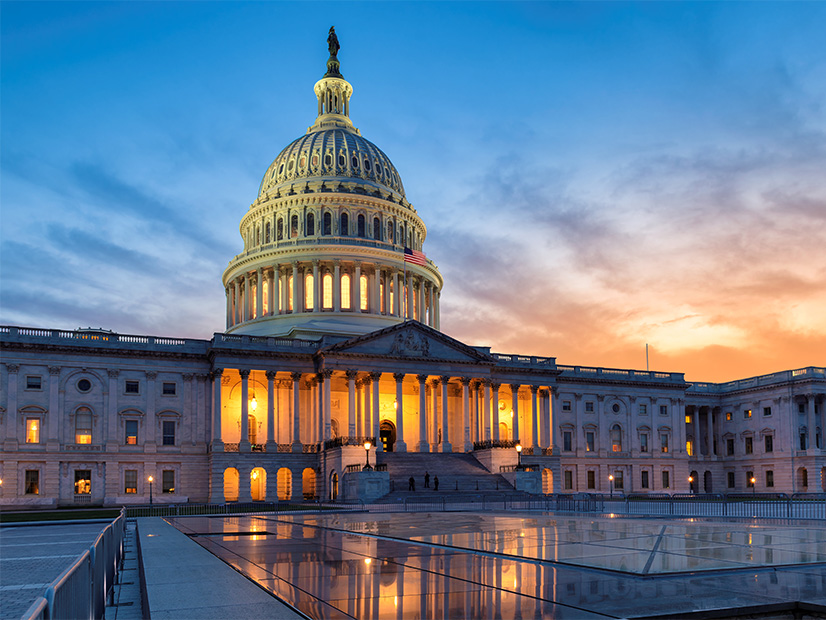
The ERO’s communication with energy policymakers is becoming increasingly crucial to ensuring the reliability of the electric grid, according to NERC’s 2023 ERO Reliability Risk Priorities Report released this week.
NERC’s Reliability Issues Steering Committee (RISC) develops the report every two years, based on input from ERO Enterprise stakeholders and policymakers on the risk areas of most concern to them. The organization’s Board of Trustees accepted the report last week at its meeting in Ottawa, with Chair Ken DeFontes calling it “the best [reliability risk report] I’ve ever seen.”
Reliability risks in the 2023 report are grouped into five risk profiles:
-
- Energy policy — on the federal, state and provincial levels;
- Grid transformation — including grid planning, resource adequacy and performance and the changing resource mix;
- Security risks — physical, cyber and electromagnetic pulse;
- Resilience to extreme events; and
- Critical infrastructure interdependence.
Energy policy is a new addition to the risk profiles; the others were present in the 2019 and 2021 reports. (See Grid Transformation, Cybersecurity Lead 2021 ERO Risk Report.) The new risk reflects the implementation of “decarbonization, decentralization and electrification” policies by federal, state and local governments across NERC’s footprint and their potential impact on reliability.
Speaking to the Board of Trustees last week, RISC Chairman Brian Slocum said that although energy policy has previously been considered “outside of the purview of NERC,” when committee members brought the topic up for inclusion they met with broad encouragement.
“We brought this as a topic to everybody [on the RISC] — are you comfortable with us putting this into the risk report? And [we] got support from all of the members that this is something that we need to talk about,” Slocum said. “Dealing with jurisdiction issues in the distribution-transmission interface and federal and state jurisdictional issues, we have to be able to talk about these things. I feel as though this is one of the most impactful things in the risk report … just bringing this opportunity for people to feel comfortable bringing up this topic and talking about it.”
The report’s authors explained that “energy policy can drive changes in the planning and operation” of the electric grid that “could present risks to its reliable operation.” Addressing this requires the ERO to develop “strong collaboration and partnerships” with policy makers to ensure that they understand the importance of grid reliability and prioritize it during their deliberations.
All five risk profiles are intertwined, the report said. Decarbonization and electrification initiatives are causing the deployment of non-synchronous generation as well as natural gas resources. The transformation also includes adoption of demand response, microgrids and other technologies that are more dependent on communication technology and electronics and thus introduce new security risks.
Extreme temperatures and disruption of wind and solar power supplies may also impact reliability. The introduction of new generation types also increases the critical infrastructure interdependencies. Just as the interruption of natural gas supplies can idle combined cycle facilities, outages in the telecommunications system may also “hamper situational awareness and real time [grid] operation.”
The interdependencies work both ways: For example, the electrification of transportation may make delivery of essential goods more difficult in power outages from a hurricane.
Trustee Larry Irving, who is CEO of a telecommunications consulting firm, warned at last week’s meeting that the communication industry is more vulnerable to electric outages than most customers realize, and emphasized the need for collaboration with NERC’s peers in other industries.
“When we had the [2003 blackout], 94% of American households had a landline phone; those landline phones had their own power,” Irving said. “Today, fewer than one in three households have a landline. We’re dependent upon [cellular] towers, which may or may not have electricity … so even if your battery and your phone work, you don’t have a phone.”
“The point I’m trying to make is, I don’t know if we do enough with the telecommunication industry,” he continued. “If we have a coordinated [cyber] attack in this country, the two places they’re going to go after, if they’re smart, would be the telecommunication industry and this industry.”



